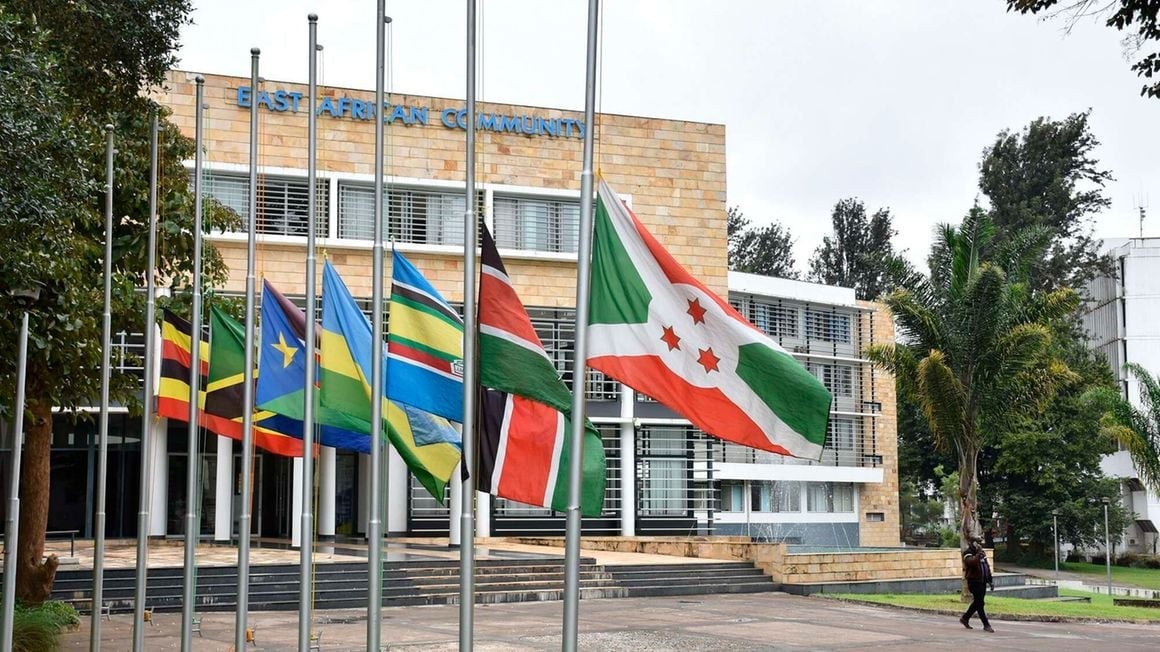
In a new effort to promote intra-bloc commerce, EAC member nations evaluate fees
The member states of the East African Community (EAC) are nearing the end of their review process regarding the fees, levies, and charges that members impose on necessary goods and services in the transportation and agriculture sectors. These fees have often ignited trade disputes and impeded intra-regional trade within the eight-member economic bloc.
The first step in the regional authorities’ ambitious plan to completely eliminate “discriminatory” and “inflated” levies and fees in seven important sectors of the region—transport, agriculture, environment, trade, finance, energy, and tourism—is the simplification of trading costs in the transportation and agricultural sectors.
In Kenya, Uganda, Rwanda, Burundi, Tanzania, South Sudan, Somalia, and the Democratic Republic of the Congo (DRC), the plan, which began in 2021, aims to review additional costs impacting the trading of poultry products, day-old chicks, hatching eggs, table eggs, fish and fish products, dairy, veterinary medicine products, pesticides, and human and veterinary drugs.
Additional costs include those for using public roads, air travel passenger services, landing, parking, and navigation, as well as port docking for cargo ships.
A comprehensive list of levies, fees, and charges in the transportation and agriculture sectors has been completed, according to people close to the process who spoke with The EastAfrican. It is now awaiting review and validation by the Sectoral Council of Ministers on Trade, Industry, Finance, and Investment, which is scheduled to hold its next session in November.
As of right now, we have a draft list for the agriculture and transportation sectors. For that issue, we are waiting for the sectoral council of ministers in charge of trade, finance, investment, and industry to convene so they can review and confirm our list. The harmonization process would next be discussed, according to the source, who then expressed his want to remain anonymous due to his lack of authority as a spokesman.
There are many levies, but initially, our goal was to harmonize them. One example of this kind of discriminatory levies is when partner states impose a tax on goods from a trading partner but do not impose the same tax on their own products, thus undermining the idea of fair trade conditions.
The EAC is examining taxes and levies on a range of goods in the transportation and agricultural sectors.
Import and export licenses for dogs and cats, import permits for live animals, transportation permits for sheep and goat breeding, inspection services fees for animals and animal products, and dairy inspection fees for imports are among the levies in the agriculture sector that are now being evaluated.
Road user fees, passenger service fees in air travel, landing fees, parking fees, fuel service fees, applications for air service licenses, air service licenses, and aircraft permits are among the fees associated with the transportation industry.
Additional costs include those associated with registering chemical products, paying radiation or atomic charges, registering poultry products, registering fish and fish products, registering products for veterinary medicine, exporting pesticides and permits, inspecting imported plants and products, obtaining phytosanitary certificates, registering human and veterinary drugs, and applying for a general import or export permit.
Additional expenses associated with ports include cargo ship docking fees, special purpose vessel docking fees for private commercial operations, truck port gate fees, warehouse cargo port storage fees, and open storage port storage fees.
This procedure aims to achieve two goals: elimination or harmonization. Certain levies would be recognized as belonging to the category of fees with a comparable impact. These are taxes that are nearly the same as import duties. As you are aware, import duties were eliminated in the EAC with the establishment of the customs union protocol. However, certain partner nations with protectionist tendencies apply levies that are nearly identical to import duties,” the source stated.
For instance, as a form of protectionism, several partner governments impose taxes on meat and meat products; yet, upon calculation, these levies end up being greater than import duties. There will be an identification of those charges and a recommendation to eliminate them.
According to the EA commerce and Investment report (2022), overall intra-EAC commerce increased by 11.2 percent to $10.91 billion in 2022 from $9.81 billion, while the intra-EAC trade’s percentage share of EAC total trade was 15% in 2022.
Cereals, cement, iron and steel, live animals, petroleum products, sugar, meals, and drinks are the main goods traded within the East African Community (EAC).
Kenyan domestic exports are still largely destined for the EAC.
While Kenya’s domestic exports to Comesa significantly decreased by 61.3 percent to $665.97 million from $1.72 billion in the same time last year, their domestic exports to Kenya increased by 112.5 percent to $3.51 billion in 2022 from $1.65 billion in 2021.
Exports to SADC fell from $746.78 million to $220.60 million, a 70.5 percent reduction.
Kenya has long been a major supplier of hatching eggs, parent stock, processed poultry products, day-old chicks (DOC), and other poultry-related goods to Tanzania.
However, because of the worldwide epidemic of highly pathogenic avian influenza in 2021, Tanzania banned the importation of chicken from Kenya (HPAI).
This restriction made it more difficult for Kenya’s chicken sector to access a crucial market.
Tanzania and Kenya effectively resolved long-standing issues on the export of poultry and poultry products between them in April of this year (2024).
Tanzania confirmed that, in response to global outbreaks of Avian Influenza, it had taken sanitary and phytosanitary (SPS) measures (requirements) in accordance with disease notification reports from the World Organization for Animal Health, and had not enforced a restriction on Kenyan poultry and chicken products. The public’s health and the welfare of animals were the targets of these actions.
Kenya reimposed a tax on eggs imported from Uganda, a neighboring country, in June 2022, sparking a new trade spat.
Uganda said that Kenya was reintroducing a tax on eggs, which had been suspended in December 2021 as a result of bilateral negotiations, at a cost of Ksh72 per tray.
All Categories
Recent Posts
Tags
+13162306000
zoneyetu@yahoo.com



